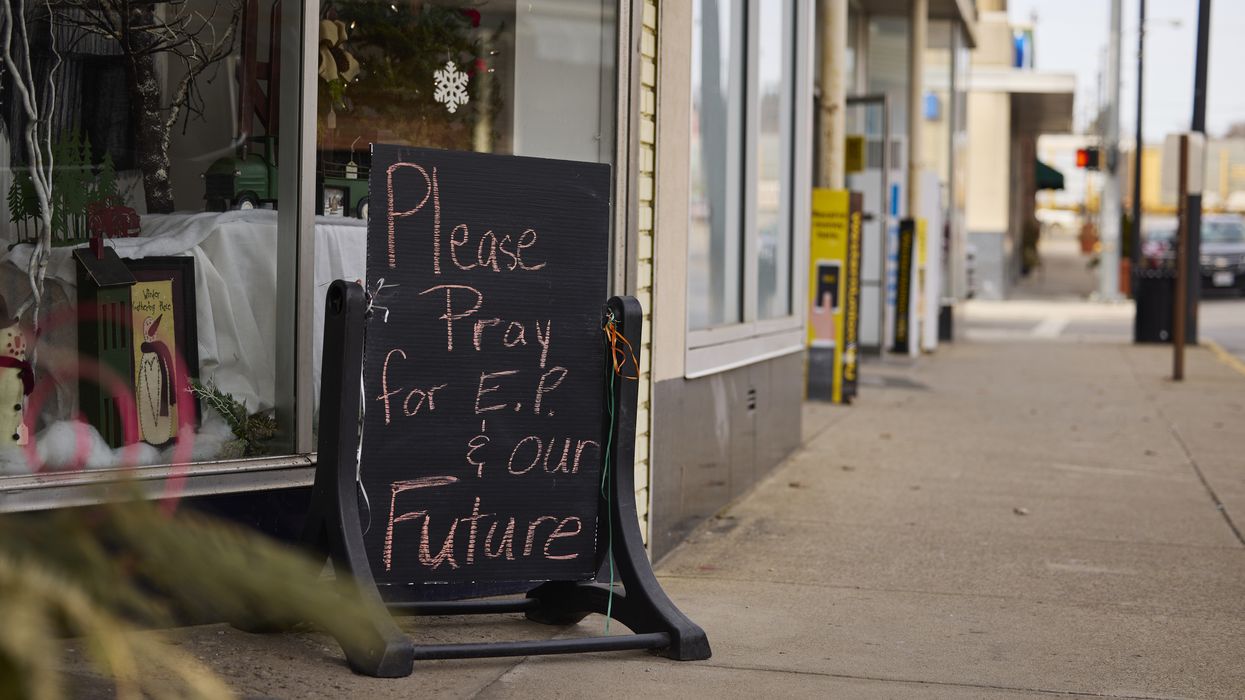'This Is Not Enough': Under Pressure, Norfolk Southern Agrees to Limited Relocation Plan
"We're going to keep pushing until the community gets the help it is owed," said Ohio River Valley organizers.
Local organizers in East Palestine, Ohio on Monday said their activism has successfully pressured rail company Norfolk Southern to agree to a limited relocation plan for some residents affected by last month's train derailment, but added they have no intention of backing down from their demand for justice for thousands of people in the area who are struggling in the aftermath of the accident.
The company's plan to offer financial assistance to people who live within a one-mile radius of the crash site "is not enough," said River Valley Organizing (RVO), which last week released a list of five demands for the people of East Palestine and the surrounding area.
While calling the proposal a "win," RVO noted people will only be able to relocate temporarily and said the disaster "has had a far-reaching impact."
"We're going to keep pushing until the community gets the help it is owed," said RVO. "We need to stop letting Norfolk Southern put their profits ahead of the people of our community."
\u201cBottom line: this is not enough.\n\nA one mile radius for relocation doesn\u2019t reflect the facts on the ground that this chemical disaster has had a far reaching impact. \n\nWe need to stop letting Norfolk Southern put their profits ahead of the people of our community.\u201d— River Valley Organizing (@River Valley Organizing) 1678118411
The U.S. Environmental Protection Agency (EPA), which late last month ordered Norfolk Southern to take full financial responsibility for cleaning up contamination from vinyl chloride, a carcinogenic chemical the train was carrying, acknowledged Monday that residents have complained of lingering odors in the town as the company continues to remove thousands of tons of contaminated soil.
"At EPA's request, Norfolk Southern has agreed to provide additional financial assistance to residents of the East Palestine area, including the portions of Pennsylvania within a mile of the derailment site," said the agency. "This assistance may include temporary lodging, travel, food, clothing, and other necessities."
The EPA told RVO and other locals that the company began to remove soil under the train tracks on Saturday and is beginning to mail out notices to people to whom the relocation plan applies.
Residents will be able to use a prepaid debit card funded by Norfolk Southern to pay for their relocation, according to local public radio station WESA, and will also be able to request that a company contracted by the rail operator clean the inside and outside of their homes.
While the company and numerous officials have downplayed the risk the derailment poses to people in the area—saying no alarming discoveries have been made in water and air testing thus far—the Columbiana County Humane Society told the Herald-Star last month that it was compiling reports of animals who became sick after Norfolk Southern began a controlled burn of the vinyl chloride, which can send hydrogen chloride and phosgene into the atmosphere.
Those reports come from up to seven miles from the crash site, said the group.
A lawsuit filed in the U.S. District Court for the Northern District of Ohio in mid-February said mass deaths of marine life and other animals have been reported "as far as 20 miles away."
Another grassroots group, United for East Palestine, joined a researcher at Purdue University in conducting a poll last week and found that out of 100 people, more than two dozen who live more than five miles from the crash site have experienced physical symptoms.
\u201cOur team worked with @TheWheltonGroup to conduct an informal survey of residents living near the derailment site at different distances. 100 total were surveyed. The questions asked were:\n\n1. Have you experienced physical symptoms\n2. Have you smelled chemicals in 24 hours\u201d— United for East Palestine (@United for East Palestine) 1677849234
"Directly affected people live outside of this radius," said RVO. "Do more, do better."
\u201cThe EPA/Norfolk Southern announced they would be offering voluntary, temporary relocation assistance for residents within a 1-mile radius of the derailment site. Directly affected people live outside of this radius. Do more, do better. #rivervalleyorganizing #ohio #eastpalestine\u201d— River Valley Organizing (@River Valley Organizing) 1678124962
Hydrogen chloride and phosgene have been known to cause headaches, skin rashes, and vomiting in people who are exposed, and those symptoms have been reported by several people in East Palestine.
RVO's list of demands included relocation services, independent environmental testing, ongoing medical monitoring, and safe disposal of toxic waste.
"While we are pleased that the EPA and Norfolk Southern have finally listened to the community and will offer relocation assistance, this help must also be offered to the broader community until independent testing verifies the safety of our homes," RVO organizer Jami Cozza told WESA. "A one-mile radius for relocation doesn't reflect the facts on the ground."
The first round of testing of drinking water in the region was paid for by Norfolk Southern, as Common Dreams reported last month.
WESA reported that remediation work is expected to continue for one to two months.
The relocation plan was announced as Norfolk Southern unveiled a "six-point plan to immediately enhance the safety of its operations," including improving its systems to detect overheated wheel bearings—which the National Transportation Safety Board said in a preliminary report likely contributed to the derailment—and supporting "a strong safety culture."
The list of changes the rail company plans on making fall short of those demanded by the Biden administration.
